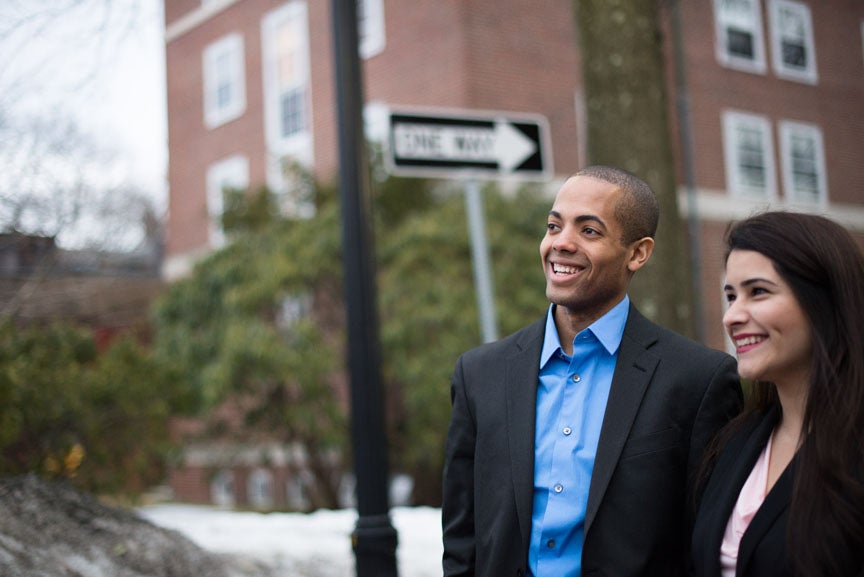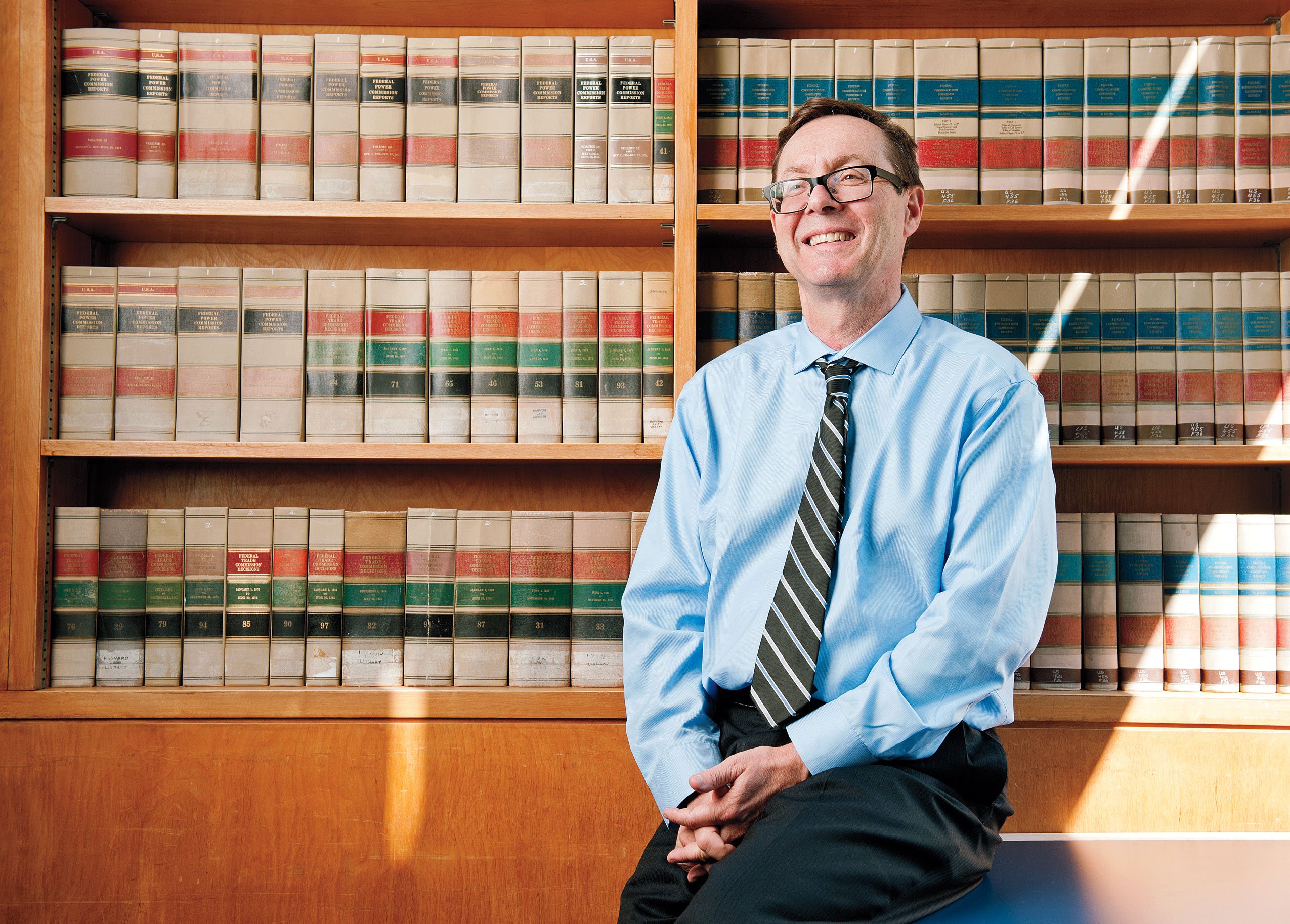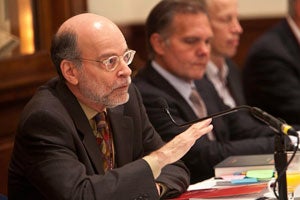People
Jesse Fried
-
The United States District Court for the District of Columbia has rejected efforts by the American Studies Association (ASA) to suppress a lawsuit filed against the Association by its own members challenging its boycott of all Israeli academic institutions. The judge ruled in favor of the ASA professors in four out of six claims, and authorized the case to go forward...“The circumstances of the ASA’s purported adoption of an anti-Israel BDS resolution are deeply shocking,” stated Harvard University Law Professor Jesse Fried who served as an expert adviser to the litigation team representing the plaintiffs.
-
Snap’s Concentrated Power Structure Takes a Page From Old Media
February 3, 2017
Snap Inc. often likens its app to a new form of television. It’s also borrowing from the playbook of traditional media companies to create a small circle of power in its top ranks...“Snap is doing something I have not seen before: creating and issuing non-voting shares at the IPO,” said Jesse Fried, a professor at Harvard Law School. “After the IPO, Snap can issue additional non-voting stock to employees or other parties without eroding the founders’ control rights.”
-
HLS faculty maintain strong presence in SSRN rankings
January 19, 2017
Statistics released by the Social Science Research Network (SSRN) indicate that, as of the end of 2016, Harvard Law School faculty members have continued to feature prominently on SSRN’s list of the 100 most-cited law professors.
-
Wells Fargo may not be the end: Clawbacks expected to become a bigger issue
September 29, 2016
In seeking to defuse the firestorm over its sham accounts, Wells Fargo & Co.’s board turned to an old, but obscure gambit – getting its top leader to pay up. John Stumpf, the bank's chairman and CEO, will forfeit about $41 million of unvested stock awards and forgo his salary while the company investigates its retail banking sales practices...Companies’ general reluctance to claw back pay may stem from their desire to retain top executives, avoid litigation by departed executives, and minimize bad publicity, says Jesse Fried, professor of law at Harvard Law School. Some companies may choose to reduce a CEO’s current pay rather than claw back already-received pay. “It is much less embarrassing for the CEO,” Fried says. Dodd-Frank “will require companies to recoup excess pay arising in connection with a (financial) restatement. There will be a lot more clawbacks because companies will not have discretion to forgo recoupment when a covered executive has received excess pay,” Fried says.
-
Wells Fargo’s CEO Pay Clawback Puts Wall Street Executives on Notice
September 29, 2016
Wells Fargo & Co's unprecedented move to strip Chief Executive John Stumpf of $41 million in stock awards has sent a chill through Wall Street with bankers fearful that a hardening political climate against corporate wrongdoing will encourage boards to be more aggressive about making them forfeit pay...."The Wells Fargo board made a mistake by not recouping some of the CEO's pay until after the firestorm developed," said Harvard Law School professor Jesse Fried. "Other boards will learn from this mistake."
-
In Wells Fargo hearing, executive pay ‘clawbacks’ are likely to take center stage
September 20, 2016
Anyone paying attention to Tuesday's Senate Banking Committee hearing over Wells Fargo's sales tactics is likely to hear a lot about a single word: "Clawbacks." It's the practice of doing just what it sounds like: Taking money back from an executive for compensation they've already been paid for things such as misconduct, gross negligence or "material" errors...Jesse Fried, a professor at Harvard Law School who studies corporate governance, says "it's still extremely rare to hear of a public company using its own voluntarily adopted clawback provision" to go after their own executive's pay.
-
Lawsuit reveals disturbing tactics by BDS supporters
May 31, 2016
An op-ed by Jesse Fried and Steven Davidoff Solomon. The American Anthropological Association has been voting this entire month on a resolution calling for the boycott of Israeli academic institutions. Today marks the final day for members to cast their votes. Should the resolution pass, the anthropologists will be the largest US academic association to support an Israel boycott, joining a handful of smaller organizations such as the African Literature Association and the American Studies Association. These anti-Israel resolutions are being pushed by BDS (Boycott-Divest-Sanction) activists eager to demonize, demoralize and ultimately destroy the Jewish state. Academic BDS is widely and appropriately viewed as morally perverse. As the American Association of University Professors, the Association of American Universities and many of the country’s leading scholars have stressed, any academic boycott interferes with the commitment to the free exchange of ideas that is still shared by most academics.
-
The Corporate Practice Commentator recently announced the list of the Ten Best Corporate and Securities Articles selected by an annual poll of corporate and securities law academics. The list includes three articles from Harvard Law faculty associated with the Program on Corporate Governance, Professors Lucian Bebchuk, John Coates, and Jesse Fried.
-
Harvard Law School Student Body President Kyle Strickland ’16 and Vice President Mavara Agha ’16 worked to enable more students to be involved in improving the student experience at HLS.
-
Statistics released by the Social Science Research Network (SSRN) indicate that, as of the start of 2016, Harvard Law School faculty members featured prominently on SSRN’s list of the 100 most-cited law professors, capturing twelve slots among the top 100 law school professors (in all legal areas) in terms of citations to their work.
-
The Examiners: Insider Pay Disclosures Can Spark Troubling Unintended Consequences
November 20, 2015
Payments made to officers, directors and other “insiders” in control of a distressed corporate debtor are closely scrutinized by other stakeholders as well as the media in larger chapter 11 cases. Bankruptcy rules require companies to disclose insider payments during the 12-month period leading up to a bankruptcy filing. ...Whatever the merits of the disclosure debate may be, the debate is swept up in the larger controversy surrounding executive pay faced by healthy and distressed businesses alike. For example, in their controversial treatise on the unfulfilled promise of executive compensation, Lucian Bebchuk and Jesse Fried weave a detailed account of how structural flaws in corporate governance have enabled managers to influence their own pay and have produced widespread distortions in pay arrangements. They believe that directors must focus on shareholder interests and operate independently from the executives whose compensation they set by making directors more directly accountable to shareholders. In rebuttal, critics point to executive compensation practices of distressed businesses to demonstrate that reducing “agency costs”—the problem created by the separation of ownership and control in larger public companies which is mitigated in distressed situations through the consolidation of ownership interests and assertion of control by sophisticated investors—doesn’t lead to material changes in executive compensation arrangements.
-
All-Star Team on a Winning Streak
October 5, 2015
Corporate governance scholars at Harvard Law keep putting up great numbers.
-
The legal journal Corporate Practice Commentator recently announced the 10 Best Corporate and Securities Articles of 2014. Half of those selected this year were written by Harvard Law School faculty members.
-
An article by John C. Coates, Jesse M. Fried, and Kathryn E. Spier. An online survey of 124 practicing attorneys at major law firms suggests possible new directions for educating and training Harvard Law School students. The most salient result from the survey is that students should learn accounting and financial statement analysis, as well as corporate finance. These two subject areas are viewed as particularly valuable both for lawyers in litigation and lawyers working in corporate/transactional practice areas.
-
Thirteen Harvard Law School faculty listed among SSRN’s 100 most-cited law school professors
January 29, 2015
Statistics released by the Social Science Research Network (SSRN) indicate that, as of the end of 2014, Harvard Law School faculty members featured prominently on SSRN’s list of the 100 most-cited law professors.
-
Can CEO Pay Ever Be Reeled In?
October 30, 2014
The compensation of American executives—CEOs and their “C-suite” colleagues—has long been a matter of controversy, especially recently, as the wages of average workers have stagnated and economic inequality has moved to the center of the national debate. Just about every spring, the season of corporate proxy votes, we see the rankings of the highest-paid CEOs, topped by men like David Cote of Honeywell, who in 2013 took home $16 million in salary and bonus, and another $9 million in stock options...But Lucian Bebchuk and Jesse Fried, in their 2004 book Pay Without Performance, argued that this procedure is a comforting fiction. They wrote that skyrocketing executive pay is the blatant result of CEOs’ power over decisions within U.S. firms, including compensation...Bebchuk and Fried showed that CEOs typically have considerable influence over the nominating process and can exert their power to block or put forward nominations, so directors have a sense that they were brought in by the CEO.
-
Should Principals Be Treated Like CEOs?
June 30, 2014
…But how can schools attract and retain good principals? One education-policy think tank suggests that part of the answer may be making the role more like an executive and giving each principal a $100,000 salary raise...But while there’s certainly a “you-get-what-you pay-for” aspect to any profession, educators don’t necessarily correspond neatly to executives. Generally, bonuses work, so long as they don’t cause principals to focus on certain criteria at the expense of their job as a whole, according to Jesse Fried, professor of law at Harvard and co-author of Pay without Performance: The Unfulfilled Promise of Executive Compensation. “People going into teaching are obviously not motivated solely by the prospect of financial gain,” he says. “[But] if society substantially underpays principals, many good people will not seek these jobs or stay in them.”
-
An op-ed by Charles Fried and Laurence H. Tribe. Although the two of us frequently approach legal questions from different perspectives, and just as often disagree about the best answers to those questions, we share a respect for our Constitution and a reverence for the judicial process. That’s why, in spite of our disagreements, we agree that Harvard Law School professor David Barron is exceptionally well-qualified to hold a seat on the US Court of Appeals for the First Circuit and that the Senate should promptly confirm him.
-
10 Things CEOs won’t tell you
May 12, 2014
… 4. I’ll cash out at the first opportunity. Since the accounting scandals of the early 2000s, corporate reformers have argued that CEOs should be required to own company stock and to keep it throughout their tenure — ensuring that the CEO’s financial interests are aligned with those of the company’s shareholders. But although 95% of the top 250 U.S. public firms have adopted these policies, they’ve been “extremely ineffectual” in requiring CEOs to hold onto their own firm’s stock, according to a paper accepted for publication in the Indiana Law Journal by Nitzan Shilon [SJD `14], a research fellow at Harvard Law School… 8. Activist shareholders pull my strings. CEOs at publicly traded companies are supposed to listen to their shareholders — but some investors speak louder than others. Recent years have brought a spike in “activist” investing by hedge-fund managers and other big-money players whose modus operandi is to buy a large share of a company, and then demand changes in strategy and management. “Acting in the shadow of shareholder activism, companies are also reviewing their boards and removing people who aren’t equipped to be there,” says Jesse Fried, a professor at Harvard Law School who studies executive compensation and corporate governance. In theory, this helps companies make better decisions, he adds.
-
The 848-page Dodd-Frank Wall Street Reform and Consumer Protection Act dedicates 149 words to framing a new disclosure about “pay versus performance” at public companies. Boards and management must deliver “a clear description” to shareholders of “the relationship between executive compensation actually paid and the financial performance of the issuer,” the law states…“If you’re stripping out pension valuations and other things, you’re cooking the books,” says Harvard Law School professor Jesse Fried, co-author of Pay without Performance: the Unfulfilled Promise of Executive Compensation.
-
A roundtable at HLS on corporate time horizons
October 22, 2012
A group of senior corporate managers, finance practitioners, and academics from Europe and the U.S. gathered at HLS on Sept. 14-15 for a conference on the role of corporate governance in encouraging long-term value in public corporations.




